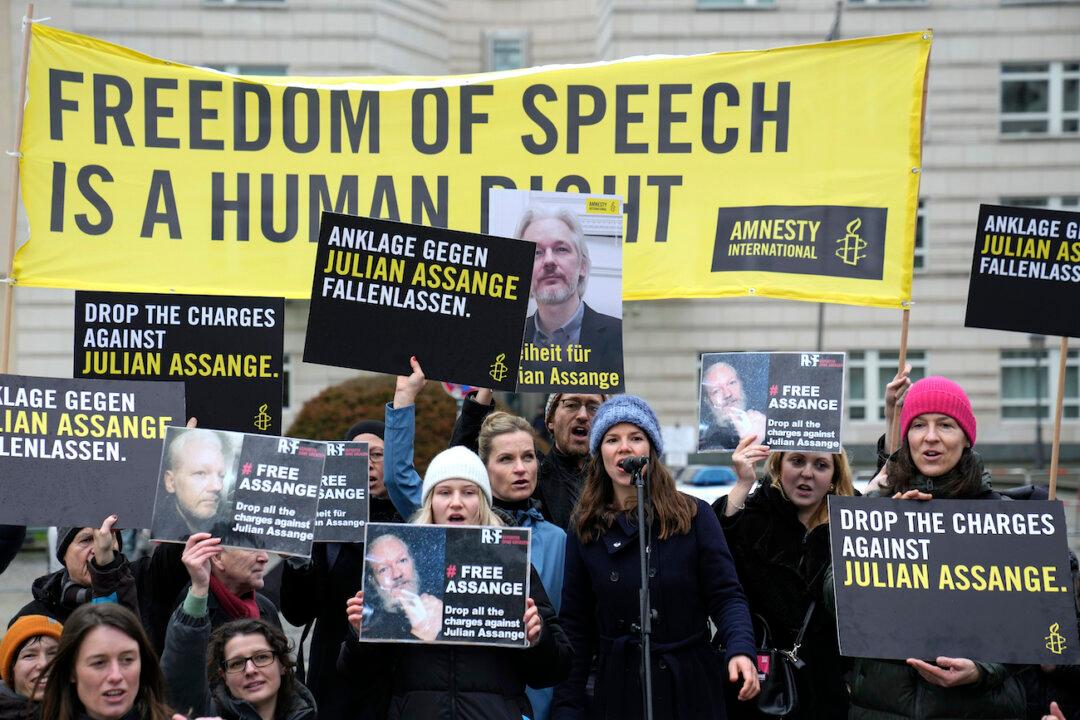If Britain’s High Court decides to deny WikiLeaks founder Julian Assange a new appeal and allows his extradition to the United States to proceed, Mr. Assange would face prosecution for collecting and publishing documents related to the U.S. wars in Afghanistan and Iraq, among other sensitive subjects. Experts on the First Amendment and digital publishing have told The Epoch Times that journalists around the world may find themselves operating with far less freedom as a result.
Last week, the court heard two days of arguments from U.S. government lawyers and Mr. Assange’s defense team before declaring that it would not issue a final judgment right away.





